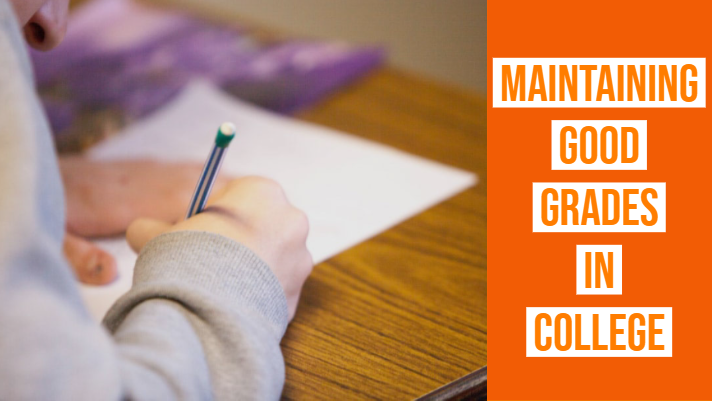
Summer is an excellent time for students to re-evaluate their progress in college. Here are some tips for students whose GPA could be suffering after the first year of college.
The college spring semester has come to an end for most colleges and universities by this point. By now, your student probably has a sense of how well they’ve done in their classes. Soon college grades will be posted and your student’s grade point average (GPA) will be recalculated.
GPA, as many parents know, is an important statistic that can affect their academic and professional career during college and after. Here’s just a few things a low GPA can do:
- Disqualify students from qualifying for scholarships and grants.
- Prevent from pursuing degree programs that have minimum GPA requirements.
- Make it harder to be competitive when seeking jobs or internships after college.
- Prevent students from qualifying for many master programs. Many masters programs have a minimum GPA requirement of 3.0.
It can be a stressful time for the student and the parent. Did they pass? How will the last semester affect their grade point average and academic standing? When the grades are finally posted, your student reluctantly reveals their final grades. It’s not pretty. Far more D’s and F’s than you would prefer. Their GPA has tanked.
The bad news is that, at least for the next semester or so, scholarships and grant opportunities might be slim pickings. The good news is that if the student is early in their academic career, they will have two or three years to slowly increase their GPA to an acceptable level.
I’ve been there.
My second semester of college didn’t go well. Long story short. I spent more time reading than studying. And I occasionally forgot about important assignments. My GPA sank to around a 2.0.
The report card was a wake-up call. I needed to start taking school a lot more seriously. Instead of spending the entire summer beating myself up over the mistake, I decided to proactively strategize how I would slowly increase my GPA to an acceptable level. By my final year of college, I had successfully increased my GPA to a 3.2.
Your student made a mistake, but with a little strategizing they can follow a similar recovery path.
Before we delve into tips and tricks to facilitate GPA recovery, let’s pinpoint a GPA goal. Amber Anderson, a career coach counselor, for University of Alabama at Birmingham, is a career expert. Anderson sets the minimum acceptable GPA at 3.0 in a webinar entitled Job Search, Interview, and Business Attire Strategies.
In the webinar, Anderson also points out that students can choose either to utilize their overall GPA or their degree GPA which excludes non-degree courses taken. The fact they can choose the highest score makes GPA a little more forgiving.
Below are strategies to help your student reach the 3.0 GPA they will need to increase their chances of academic and professional success.
Drop the Course
Before the cut-off date for dropping courses, students can determine if there are any classes they have no chance of passing. If it looks likely your student will earn a ‘D’ or an ‘F’ in the class, they might want to drop the course. Just warn them not to drop too many. Dropped courses, while not affecting their GPA, do show up on their academic transcript. If they withdraw from too many courses, it can look bad.
Scope Out the Professor Before the Class
Encourage your student to try to discover how the professor of a class grades while they can still drop the class without it showing up on their academic transcript. I had one poetry professor, for example, who tended to give low grades on almost all assignments. If I had known about that tendency, I wouldn’t have signed up for the class. Your student can get a sense of their future professors by asking his fellow students who have had classes with the professor and utilizing professor rating websites.
Re-Take Classes
Many universities and colleges have policies that allows students to re-take a course to improve their grade and GPA. Depending on the school, the policy tends to either replace the grade entirely or takes the average score of both attempts. Re-taking my math class changed my grade from a low ‘C’ to an ‘A.’ That was a huge boost to my overall GPA.
Appeal for Special Permission if GPA is Barring You from a Degree Path
Teaching, I know, often has a minimum GPA to pursue higher level classes within that degree path. If your student wishes to pursue that career, but does not currently meet GPA standards, he or she can appeal to be granted entrance to that degree path.
Whether not the appeal is granted, will probably be dependent on the reason for the drop in GPA, how far off they are from the minimum GPA, and how much progress they’ve made restoring their GPA to an acceptable level. If the appeal is a semester after the student partied their grade away, I wouldn’t count on having that appeal granted.
Grade point average is an important metric that can lead to academic and career success. A low grade point average early in your child’s academic career, while not ideal, won’t destroy their chances of success in the future. With a little hard work and dedication, students can gradually increase their GPA to an acceptable level by the time they graduate.
________________________
Today’s guest blogger, Samantha Stauf, was a first generation college student. Since Samantha graduated two years ago, she’s spent her free time writing articles meant to help current students succeed. You can find her on Twitter at the hashtag @samstauf.


